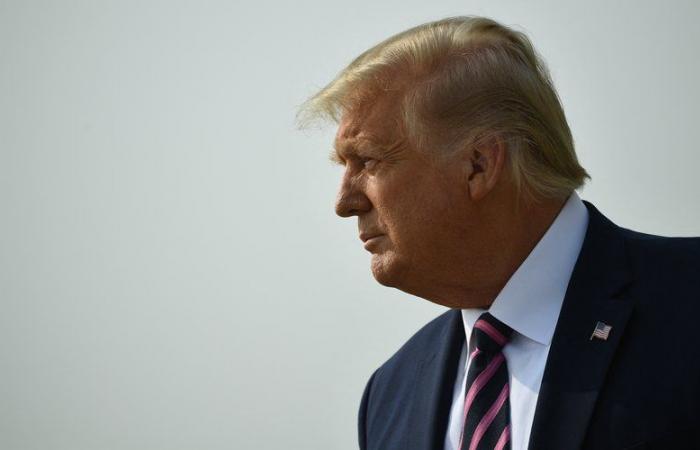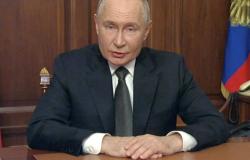
the essential
Donald Trump promised that, as president, he would resolve the war in Ukraine “in 24 hours”. His peace plan remains unclear for the moment between demilitarized zone, neutrality of Ukraine or territorial concessions to Russia. Several lines are in competition among the advisors of the future president…
Donald Trump has always had a sense of formula. During the American presidential campaign that he has just won, the billionaire assured that, as president, he would resolve the conflict in Ukraine “in 24 hours”. Simplistic rhetoric that worked well in meetings, but what will it really be like when Donald Trump takes his place in the Oval Office of the White House on January 20? At the moment, no one knows exactly.
Certainly, Donald Trump and the Republicans have several times slowed down the Biden administration's colossal military aid plans for Ukraine in Congress. Since the start of the conflict, Washington has, in fact, been at the head of Ukraine's 50 allied or partner countries and has provided more than $64.1 billion in military aid according to a Pentagon report published on October 21. .
Of course we know that the Republicans, now isolationists, want to put an end to the role of the United States as “world policeman” with the related expenses. And of course we know Donald Trump's fascination with autocrats, including Vladimir Putin, whom he spoke to several times on the phone after his departure from the White House in 2020.
Demilitarized zone and no NATO membership
But we know nothing in detail about the peace plan that Donald Trump imagines implementing in Ukraine. “I have a very specific plan to stop Ukraine and Russia,” the former American president assured during an interview in September, indicating that he would not reveal it in order to maintain the effect of “ surprise “. “If I win, as president-elect, I will ensure that an agreement is reached, that’s guaranteed,” he continued without giving the slightest detail.
A week later, his running mate J.D. Vance, future vice-president, outlined some ideas in an interview given to a podcast. The future Trump administration would first plan to establish a “demilitarized zone” on Ukrainian territory, along the front line of some 1,300 kilometers, without specifying whether the Russian zone of Kursk, conquered by Ukraine in recent weeks, would be included in this zone. This would be “strongly fortified so that the Russians do not invade the country again” indicated the senator from Ohio. This demarcation zone would effectively freeze the conflict by conceding 18.2% of Ukrainian territory to the Russians (including Crimea). It is difficult to see how the Ukrainians would accept such a loss.
DDM
Second major point mentioned by Vance: Ukraine would maintain its independence in exchange for a guarantee of neutrality given to the Russians. Which means that Ukraine could not join NATO for at least 20 years or other “allied institutions”; in exchange, the United States would continue to supply weapons to Ukraine to deter a future Russian attack.
Beyond these two points, the peace plan remains vague and would be the subject of bitter battles for influence between Trump's advisers according to the Wall Street Journal. “Trump has not approved a specific peace plan, his allies said, including how he would convince Russian President Vladimir Putin and Ukrainian President Volodymyr Zelensky to sit at the same table and negotiate,” assures the newspaper of the American capital.
“Anyone, regardless of their rank in Trump's circle, who claims to have a different point of view or a more detailed view of his plans regarding Ukraine simply does not know what he is talking about or does not understand that he is taking its own decisions on national security matters, often in the moment, especially on an issue as central as this,” a former Trump National Security Council adviser was quoted as saying by the WSJ.
Two lines among Trump's advisers
Two lines clash: that of Mike Pompeo, ex-Secretary of State who would do well at the Pentagon, who is pushing so that a settlement of the conflict does not seem to give a major victory to Moscow. In contrast, State Department or national security nominee Richard Grenell appears to be prioritizing Trump's desire to end the war as soon as possible, even if that means forcing kyiv to do so. big concessions…
Regarding the demilitarized zone, the WSJ quotes a member of the Trump team who explains that the peacekeeping force would not involve American troops and would not come from an international body financed by the United States, such as the United Nations. “We are not sending American men and women to keep peace in Ukraine. And we don't pay for it. Ask the Poles, the Germans, the British and the French to do it,” explains this advisor.
Which line will Trump ultimately choose between a rapid plan from which Putin would benefit too much or a more complex option and perhaps more desired by the American defense industry? Response in a few weeks.





